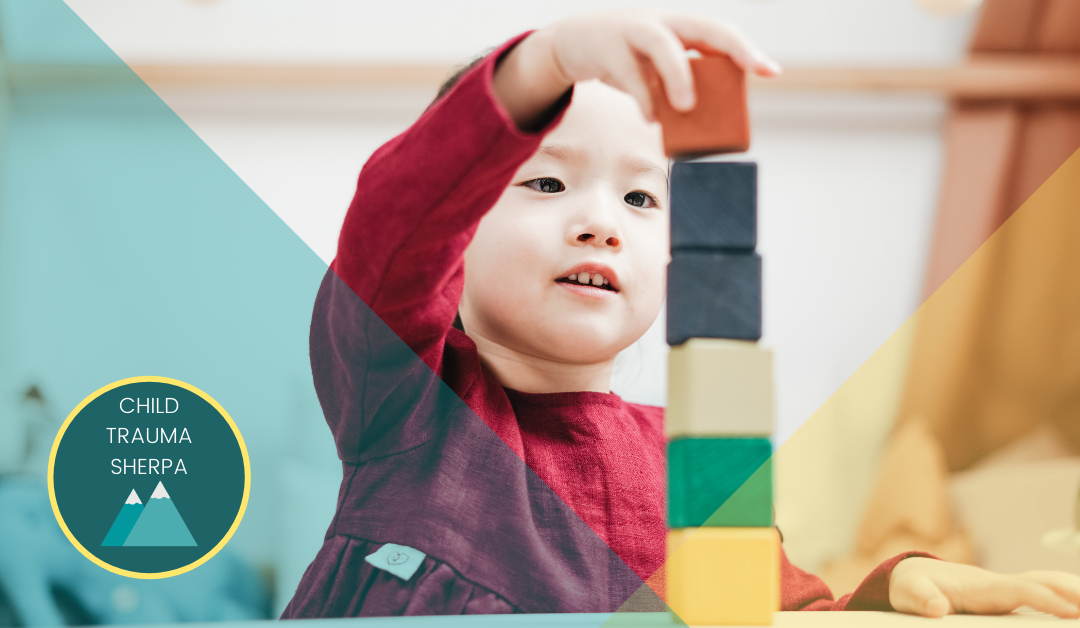Childhood Trauma Effects:
Childhood trauma has real effects on the health and well-being of kids that can carry into adulthood if not properly addressed. These health effects are very common for adopted children that have experienced neglect, abandonment and abuse, however, it is often poorly diagnosed. Unfortunately, these negative experiences can leave lasting effects on kids and cause behavioral issues and physical health issues as well. But there is good news on the treatability of childhood trauma in kids.
Childhood Trauma is a Brain Injury
When we experience something scary, our brain triggers the “fight or flight” response. Your brain sends a signal to release the stress hormones of adrenaline and cortisol, causing your heart to pound and your pupils to dilate. This gets you ready to fight or to run from that scary situation.
However, when this response is activated over and over again, it goes from being adaptive to maladaptive, or health-damaging. In other words, this repeated activation of the fight or flight response, referred to as Adverse Childhood Experiences (ACE), actually causes damage to the brain and other systems in the body. Children are especially vulnerable to this type of brain injury due to their still developing brains. And while a still developing brain is more susceptible to brain injury from childhood trauma, the good news is that it also means a growing brain can heal over time with the proper care.
Behavioral Health Issues in Children with Trauma
Just one way that this brain injury manifests is through behavioral issues such as lying, manipulation, aggression, engaging in high-risk behaviors and a host of seemingly unsolvable learning disabilities and other behavioral health issues. Repeated exposure to adversity in childhood affects the pleasure and reward center of the brain. It inhibits the prefrontal cortex, which is necessary for impulse control and executive function. This portion of the brain is critical for learning. Further, MRI scans have shown measurable differences in the amygdala, the brain’s fear response center, giving a scientific reason behind why children who have experienced repeated trauma have behavioral issues.
Physical Health Effects of Childhood Trauma
These behavioral health issues can make a person more likely to engage in high-risk behaviors that can increase the likelihood of developing health issues. It also turns out that even those with ACEs who don’t engage in high-risk behaviors can also develop health issues. These health issues can manifest not only in the brain but in the immune system, hormonal systems and even change the way our DNA is read and transcribed. This means that those with ACEs may not only develop ADHD, but could also develop asthma, heart conditions and other health complications. Both behavioral and health issues can continue into adulthood if not properly diagnosed and treated.
Moving Forward to a Place of Healing
While a still developing brain leaves room for repairing itself, it is important to understand that this healing can take a long time. As caregivers, we must provide a new life of trust, safety and love. Not only do you as a parent have to provide this, but all adults in the life of your child with trauma, such as teachers. In order to move forward, the entire team has to be on the same page. But what this healing brings about is your child with trauma learning to connect, share and love others.
Conclusion
Adopted children with trauma have experienced pain and loss of trust and the feeling of safety from the adults in their lives. So as we move forward here at Child Trauma Sherpa, my goal is to help parents of adopted children with trauma. I want to share with you my own experiences of raising adopted children with trauma and what I learned from those experiences. But most importantly, I want to share what I know works for the healing process and how you can begin to help your own child heal from their past Adverse Childhood Experiences (ACE), in the hopes that your children will experience less ill health effects later in their lives.
Join our community on Facebook for parents of adopted children with trauma. Our mission is to end childhood trauma by equipping parents with a purpose driven approach that creates hope and healing.


